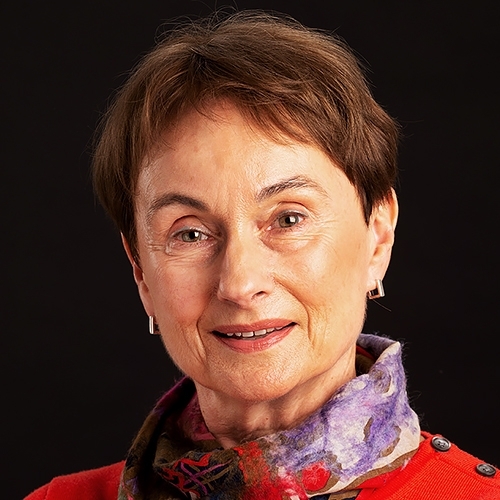 IBCLC Detailed Content Outline: Psychology, Sociology, and Anthropology Focused CERPs - Section V
IBCLC Detailed Content Outline: Psychology, Sociology, and Anthropology Focused CERPs - Section V
Access CERPs on Psychology, Sociology, and Anthropology for the IBCLC Detailed Content Outline recertification requirements. Enjoy convenient on-demand viewing of the latest Psychology, Sociology, and Anthropology focused IBCLC CERPs at your own pace.

Babies Cry to Communicate, Not to Manipulate... Non-Medical Reasons for Crying: An Anthropological Approach

Katrien Nauwelaerts graduated as a prehistoric archaeologist in 2005. She's the mother of three breastfed children and the administrator of the Dutch breastfeeding-website Borstvoeding Aardig, https://borstvoeding.aardig.be. Katrien worked as a volunteer breastfeeding-counsellor, provincial coordinator and training manager for the Belgian breastfeeding organisation Borstvoeding vzw between 2010-2014. Up tot 2018 she was the founder and president of Aardig Leven vzw, a non profit ecological organisation. In 2013 she became an IBCLC. Since 2013 she's working as a lactation consultant at her own private practice Borstvoeding Aardig. She became a nutritionist and a herborist in 2014. Katrien shares her experiences and knowledge on lactation consulting as a public speaker since 2014.
Topic: Breastfeeding and The Use Of Herbs - [View Abstract]
Topic: Young Mothers and Breastfeeding in Belgium - [View Abstract]
There is scientific research that says that breastfeeding duration shortens when parents experience their baby as a baby who cries a lot.
There are all kinds of medical reasons why a baby is crying. Crying is a way of communication for a baby. It's a cry for help.
But what if there are no obvious medical reasons for a baby's crying behavior?
This lecture explains sociological and anthropological factors that can influence crying behavior in babies.
Sometimes parents have false expectations about parenting and baby behavior. Sometimes cultural assumptions make parents believe they have a crying baby when they actually haven't. And some cultural or anthropological parameters can strengthen the crying behaviour in a baby. Learn more about normal newborn crying behaviour and how to help parents understand their newborn.
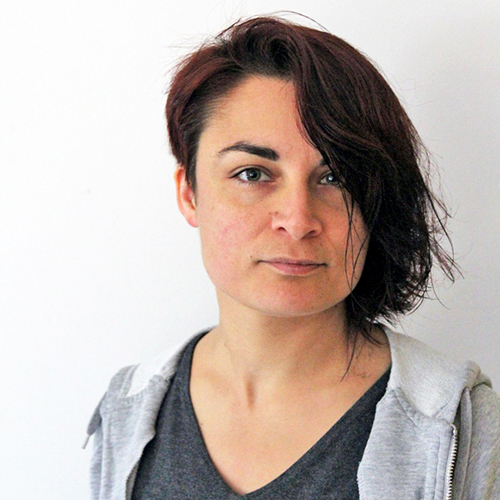
View Details / Enroll
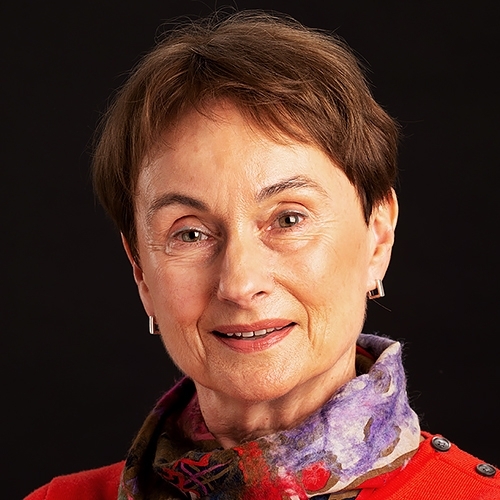

Jo Gilpin is a Registered Nurse, Midwife and has worked for many years as a Child Health Nurse with the Child and Family Health Service in South Australia (CaFHS). During this time she completed a Graduate Diploma in Health Counselling. She also studied Infant Mental Health at the University of South Australia. She became an IBCLC in 1996.
Her passion throughout has been educating, encouraging and supporting parents to have successful, enjoyable, breastfeeding relationships with their babies. This has been the main focus of her work.
She has worked privately as a Lactation Consultant since 2005. She has published two books, both on breastfeeding. Her most recent is 'Brilliant Breastfeeding: A Sensible Guide'. This was published in October 2018. This book aims to sensitively guide parents and future parents towards fulfilling breastfeeding relationships with up-to-date, evidence-based information. Attention is paid to the many challenges that parents face.
Jo loves what she does and never considers it 'work'. She lives with her husband on Kangaroo Island, which is just off the southern coast of South Australia. Her children and five grandchildren live in Sydney and Brisbane.
A baby’s birth can have a significant impact on breastfeeding outcomes. Medical intervention in normal birthing situations is rife, and globally cesarean rates have soared since 2000. Along with this, breastfeeding rates are less than ideal. A mother who feels a sense of grief about the birth of her baby is consequently more likely to face breastfeeding challenges. IBCLC’s, midwives and medical officers will often begin a breastfeeding consultation by listening to a mother’s unhappy perception of her baby’s birth. This aspect needs to be sensitively supported.
It is high time we take stock and pay more attention to what world health authorities are recommending to improve birthing and thus breastfeeding outcomes. These outcomes can affect a mother’s feelings of empowerment, her physical and mental health. Baby’s health and general development are statistically better when breastfed. There are significant financial savings made by reducing costs in various countries health systems when mothers breastfeed successfully.
There are definite changes we can make, following recommended guidelines and recent research. We can do this individually in our work and also in our affiliations with professional bodies by supporting and encouraging government policymakers and advocacy groups.
These are our future challenges.

View Details / Enroll
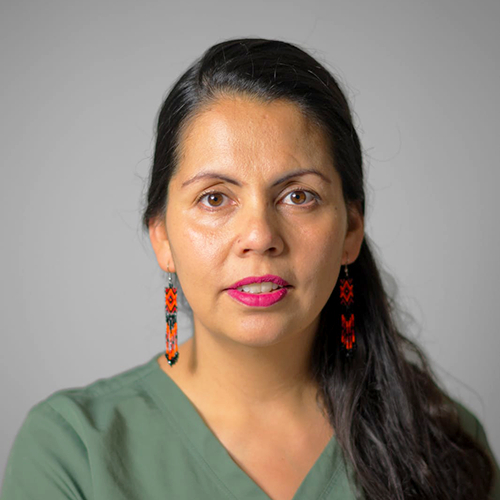
Birth at the Border: A Case Study of Refugees and Migrants at the Tijuana-San Diego Border

CNM Ximena Rojas Garcia is a Midwife and licensed Obstetric Nurse from the National Autonomous University of Mexico, she comes from a line of traditional midwives. Ximena has 15 years of experience in her field and as a Midwifery Professor, she has certifications in Obstetrical Emergencies, Neonatal Resuscitation, Water birthing and Acupuncture. Ximena founded "Partería y Medicinas Ancestrales," the only Mexican Midwifery NGO that includes Midwives from all paths and programs, which was instrumental in providing maternal health access during the humanitarian crisis after the arrival of thousands of asylum seekers from Haiti, Congo and Central America to the US-Mexico border.
Ximena has been collaborating with Stanford University's Obstetricians, Gynecologists and Pediatricians to train Midwives and Health providers at the US San Diego-Tijuana border to improve birth outcomes. She organizes direct relief to support trauma recovery responding to crises and disasters as a member of Acupuncturists Without Borders. Ximena also created a Doula training program, responsible for training more than 300 Doulas in Mexico, Colombia and Guatemala, aimed at eradicating obstetric violence, lowering the frequency of unnecessary c-sections, and decreasing maternal and newborn mortality.
Ximena is one of the founders and co-directors of Refugee Health Alliance and currently practices clinically at Justicia en Salud RHA Sexual & reproductive health free clinic. She established the first free birth center in Baja California, Mexico that serves vulnerable populations including displaced migrants, asylum seekers, deportees, sexual assault survivors, black, brown and indigenous families who historically had faced forced sterilizations, higher maternal death and newborn death. Her philosophy of birth is: Birth is a unique experience like a ceremony that heals trauma and the next generations when we hold space for it to happen.
Over the past years, Tijuana, Mexico, has seen an influx of U.S.-bound refugees and migrants, many of whom have escaped incredibly difficult situations in their country of origin. With no or little access to healthcare, pregnant women and girls are often most vulnerable.
Parteras Fronterizas / Borderland Midwives caters to the unique needs of this underserved patient population by utilizing a holistic approach that combines midwifery, traditional and Western medical practices.
This presentation explores the unique challenges pregnant migrants and refugees face at the US/Mexico border.
It highlights the importance of the midwifery model of care and dives into how midwives and healthcare providers can provide compassionate, trauma informed and comprehensive care despite difficult and limiting circumstances. The presentation will also discuss global health and midwifery skills that can help dismantle health disparities.
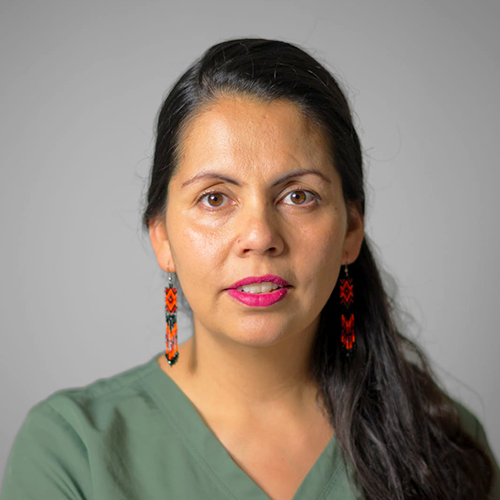
View Details / Enroll


Parijat Deshpande is the leading integrative high-risk pregnancy specialist, somatic stress & trauma professional and speaker and author who guides women to improve their pregnancy complications so they can reduce their risk of preterm birth. Her unique neurobiological approach has served hundreds of women to manage pregnancy complications and reclaim a safety and trust in their bodies that they thought was eroded forever. Parijat is the author of bestselling book Pregnancy Brain: A Mind-Body Approach to Stress Management During a High-Risk Pregnancy. She is also the host of the popular podcast Delivering Miracles®️, that discusses the real, raw side of family-building including infertility, loss, high-risk pregnancy, bed rest, prematurity and healing once baby comes home. Parijat professional training is in clinical psychology and she is a Certified Trauma Professional and Certified Clinical Trauma Specialist for individuals.
Birth trauma is a preventable complication of pregnancy and providers play a critical role in this prevention. Preventing birth trauma not only supports a positive birth experience for the birthing person, but sets the foundation for optimal post-pregnancy health. This is because birth trauma is a catalyst for various long-term health issues for the birthing person including attachment difficulties, chronic pain, chronic illness, autoimmune diseases, postpartum mood and anxiety disorders, as well as an increased risk of pregnancy complications in future pregnancies. Through the study of somatic and somatosensory modalities, as well as years of client work in the high-risk pregnancy population, I have seen clients at risk for pregnancy complications and preterm birth defy medical odds and protect themselves from a traumatic birth in their pregnancies after loss or preterm birth. This presentation will cover the three most important roles of a provider in the facilitation of birth trauma prevention.

View Details / Enroll

Breaking the Silos: Understanding the Connections Between Labor Interventions and Lactation

Janiya Mitnaul Williams, MA, IBCLC, RLC, CLC is an International Board Certified Lactation Consultant, Registered Lactation Consultant, and Certified Lactation Counselor who has been supporting nursing families since 2007. She holds degrees from North Carolina Agricultural and Technical State University and Union Institute and University in Speech-Language Pathology and Audiology and Health & Wellness with a concentration in Human Lactation respectively.
Janiya is the Program Director of the Pathway 2 Human Lactation Training Program at N.C. A&T SU (NCAT P2P). She also works for the Women’s and Children’s Center at Cone Health as the Co-Coordinator for Doula Services. In 2015 she created Mahogany Milk Support Group in order to promote, encourage, and normalize nursing for Black and Brown families. That same year, Janiya also became the first person of color and Non-Registered Nurse to be hired as a Lactation Consultant for Cone Health’s hospital system.
She is most passionate about creating diversity, equity, and inclusion within the field of Lactation in order to promote better health outcomes for Black and Brown, marginalized, and underprivileged families because they have the greatest lactation barriers to overcome.
Birth and breastfeeding/chestfeeding are intimately woven together although many separate the two. One's labor and birth process however, have a direct impact on how their nursing journey begins. Naturally, most infants can independently progress through the fetal to neonatal transition and produce a baby-led latch within the first hours of life. However, the process of birth is often unpredictable and many birthing families are regularly faced with common or unexpected labor interventions that can adversely affect milk supply and the initiation and receptivity of breastfeeding/chestfeeding for the infant. Some of the most common interventions include: IV fluids, induction of labor, epidurals, and continuous electronic fetal monitoring. These maternity care practices come with unintended consequences that directly impact lactation. Furthermore, studies indicate that many of these interventions are done more for convenience as opposed to medical reasoning. In order to promote, protect and support breastfeeding/chestfeeding for birthing families, providers and other members of the healthcare team should be encouraged to work in tandem; using effective communication and facilitating open dialogue. By including families in every aspect of their birth and postpartum period, self-efficacy and confidence is increased and trust is developed, setting the foundation for increased initiation and duration of human milk feeding.

View Details / Enroll

Breastfeeding / Nursing Aversion and Agitation (BAA) in breastfeeding mothers

Zainab Yate is a Biomedical Ethicist, with a specialist interest in infant feeding. Zainab is Vice Chair and named qualitative lead on a paediatric flagged Research Ethics Committee Panel for the Health Research Authority (HRA) in the UK, reviewing research protocols for over a decade. Zainab's previous working background is in Public Health and Commissioning the National Health Service (NHS) in the UK. She had also been a volunteer breastfeeding peer supporter with the NHS for a number of years, is the owner-author of the resource site for mothers and healthcare practitioners on Breastfeeding / Nursing Aversion and Agitation and author of "When Breastfeeding Sucks".
Topic: Breastfeeding / Nursing Aversion and Agitation (BAA) in breastfeeding mothers - [View Abstract]
Topic: Navigating the Future: Bioethical Challenges in Anticipated Integration of AI in Lactation and Breastfeeding Services - [View Abstract]
Topic: Research Ethics & Infant Feeding: How to Utilise the Four 'D's of a Brief Assessment - [View Abstract]
Aversion to breastfeeding or agitation while breastfeeding is known to occur in some women who breastfeed while pregnant, or who tandem feed a newborn and a toddler. However, it is a little researched area, and the paucity of published literature around breastfeeding aversion and agitation reveals a significant gap in the literature. My presentation presents the findings of an exploratory online survey that sheds light on what appears to be a commonly experienced phenomenon of aversion and agitation whilst breastfeeding, which varies in form, severity and duration. BAA is characterised by feelings of anger or rage, a skin crawling sensation and an urge to remove the suckling infant, but can also be feelings of agitation and irritability whilst the infant is latched. Mothers who experience BAA still continue to breastfeed, but have feelings of guilt and shame about BAA and are often confused about having feelings of BAA. Research is needed to understand the reasons for BAA, its causes, triggers and strategies to minimize the experience in breastfeeding mothers.

View Details / Enroll

View Details / Enroll

Breastfeeding and Neonatal Abstinence Syndrome

Amber Valentine is a Speech-Language Pathologist who graduated from the University of Kentucky with her MS in Communication Disorders. She is a Board Certified Specialist in Swallowing and Swallowing Disorders and an International Board Certified Lactation Consultant, as well as a Certified Neonatal Therapist (CNT). She worked for Baptist Health Systems, Inc for 8 years before moving to Florida where she worked for Wolfsons Children’s Hospital and Mayo Florida. She is now back in Kentucky working for Baptist Health Lexington. She has experience in adults and pediatrics with feeding and swallowing difficulties including: bedside swallow evaluations, Modified Barium Swallow studies, FEES, and pediatric feeding evaluations including NICU. She has experience with head and neck cancer patient including evaluation and treatment of swallowing difficulties, PMV use, and voice after total laryngectomy including TEP. She has provided guest lectures for the University of Kentucky, Eastern Kentucky University, and the University of Louisville on feeding and swallowing topics. She has presented at the hospital, local, state, national, and international levels on pediatric feeding/swallowing and breastfeeding.
Topic: Breastfeeding Medically Complex Infants in the Neonatal ICU - [View Abstract]
Topic: Building a Successful Breastfeeding Program in the NICU: Challenges and Practical Solutions - [View Abstract]
This presentation is designed to discuss the role of feeding therapy, breastfeeding, and family dynamics with infants with neonatal abstinence syndrome. These baby/family dynamics can be complex situations and feeding difficulties are extremely common. Breastfeeding education/information can be implemented prior to birth along with other education for families to promote more infant/family bonding and reduce stress of being born in substance exposure. Breastfeeding dramatically reduces stress signs in infants exposed to substances neonatally. Working together as an interdisciplinary team, we can set these families up for more successful feeding opportunities and decreased stress in developmental care.

View Details / Enroll
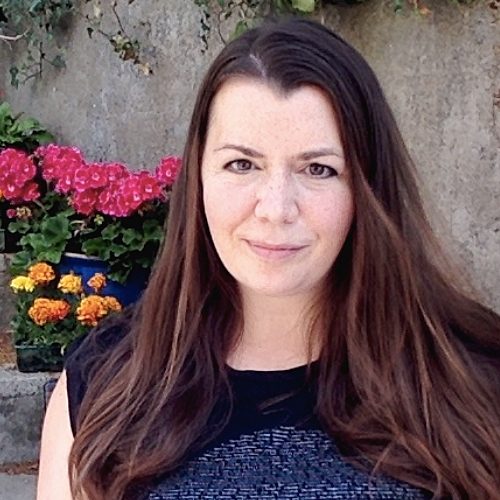
Breastfeeding as a Public Health Issue: Do we Have the Right Approach?

Professor Amy Brown is based in the Department of Public Health, Policy and Social Sciences at Swansea University in the UK. With a background in psychology, she has spent the last thirteen years exploring psychological, cultural and societal influences upon infant feeding decisions in the first year. Her research seeks to understand how we can shift our perception of how babies are fed away from an individual mothering issue to a wider public health problem – with societal level solutions. Dr Brown has published over 60 papers exploring the barriers women face in feeding their baby during the first year. She is a mother to three human children and three book babies: Breastfeeding Uncovered: Who really decides how we feed our babies, Why starting solids matters, and The Positive Breastfeeding Book: Everything you need to feed your baby with confidence. She is a regular blogger, aiming to change the way we think about breastfeeding, mothering and caring for our babies.
Topic: Breastfeeding Trauma: How Can We Recognise and Support Mothers Who Wanted to Breastfeed but Were Unable to Meet Their Goals? - [View Abstract]
Topic: How Can We Better Support Mothers Don’t Meet Their Breastfeeding Goals? - [View Abstract]
Topic: What Do Normal Infant Feeding Patterns Really Look Like? - [View Abstract]
The majority of women should be able to breastfeed, but elements of their experience are ultimately stopping them from doing so. Breastfeeding works best when done responsively but many psychological, social and cultural factors work directly or more subtly against responsive feeding, meaning that many mothers experience difficulties with breastfeeding which can lead to premature weaning. These factors can include separation of mother and baby, a lack of understanding of breast milk production, public attitudes and wider pressures of motherhood to name a few. If we want to support mothers to breastfeed we must understand and target these wider factors to create a supportive breastfeeding environment. It is important however that our approaches to breastfeeding promotion and education are perceived positively by mothers in order for them to be effective. In this presentation I’ll be addressing the common barriers to breastfeeding and their impact, along with new research that looks at how mothers perceive common breastfeeding education messaging and what this research tells us about how we can change our approach to ensure our messages have the intended impact.

View Details / Enroll
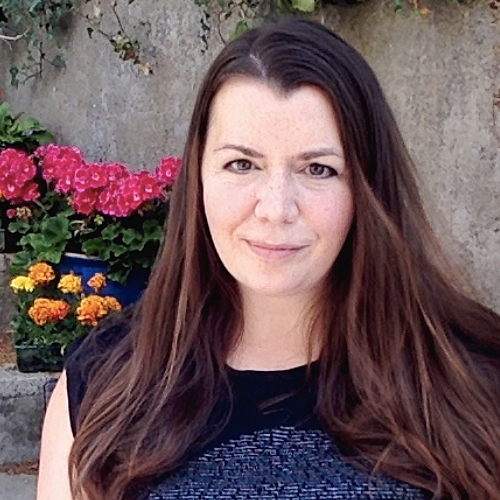
View Details / Enroll

Breastfeeding in Hong Kong and traditional Chinese wisdom on confinement practices

Heidi Lam is a private practice IBCLC and La Leche League Leader in Hong Kong. She tandem nurse her two daughters and have more then 8 years of breastfeeding experience. She was accredited as La Leche League Leader in 2009. In 2010, to she was awarded the Trudi Szallasi Memorial Scholarship from Health-e-learning.com to complete a one year course on lactation medicine. In 2011, she was qualified as International Board Certified Lactation Consultant. Her job focus mainly on home visits to clients and running breastfeeding classes. Heidi is also active in promoting breastfeeding and was often interviewed by parenting magazines and other media in Hong Kong. Heidi was a Hong Kong delegate to spoke at the Susuibu.com International Lactation Conference 2010 in Malaysia. She also speaks regularly at local breastfeeding support groups.
Breastfeeding rates upon discharge is rising in Hong Kong over the past 20 years. Breastfeeding has become more of a topic than ever before. However, it is still very common to have early introduction of formula and exclusive breastfeeding rate is still low. Most private hospitals do not allow 24 hours room in. Many mothers need to go back to work when the baby is only six weeks old. In Hong Kong, it is very common to practice a confinement period after birth. This traditional Chinese wisdom has many benefits for the mothers and babies. Mothers of other cultures can also make use of some of the practices to benefit themselves.

View Details / Enroll

View Details / Enroll

Breastfeeding Trauma: How Can We Recognise and Support Mothers Who Wanted to Breastfeed but Were Unable to Meet Their Goals?

Professor Amy Brown is based in the Department of Public Health, Policy and Social Sciences at Swansea University in the UK. With a background in psychology, she has spent the last thirteen years exploring psychological, cultural and societal influences upon infant feeding decisions in the first year. Her research seeks to understand how we can shift our perception of how babies are fed away from an individual mothering issue to a wider public health problem – with societal level solutions. Dr Brown has published over 60 papers exploring the barriers women face in feeding their baby during the first year. She is a mother to three human children and three book babies: Breastfeeding Uncovered: Who really decides how we feed our babies, Why starting solids matters, and The Positive Breastfeeding Book: Everything you need to feed your baby with confidence. She is a regular blogger, aiming to change the way we think about breastfeeding, mothering and caring for our babies.
Topic: Breastfeeding Trauma: How Can We Recognise and Support Mothers Who Wanted to Breastfeed but Were Unable to Meet Their Goals? - [View Abstract]
Topic: How Can We Better Support Mothers Don’t Meet Their Breastfeeding Goals? - [View Abstract]
Topic: What Do Normal Infant Feeding Patterns Really Look Like? - [View Abstract]
It is recognised that women can experience feelings of guilt, unhappiness and anger when they cannot meet their breastfeeding goals. Breastfeeding difficulties leading to early cessation are a risk factor for postnatal depression. However, research has not previously examined these feelings of loss and distress in relation to clinical models of trauma.
From a research study exploring the experiences of over 3000 women who stopped breastfeeding before they were ready and held negative emotions around this decision, I argue that a subset of these women are displaying symptoms of clinical trauma in relation to their experience. The trauma stems from physical experiences of a difficult breastfeeding experience, but also the loss of a much-desired breastfeeding relationship. The combination of these events leaves the individual traumatised and understandably reactive to the topic of breastfeeding.
Trauma models identify numerous emotions and behaviours that individuals typically display when they have been traumatised by an event. These include recurrent distressing recollections of the events, intense psychological distress at exposure to reminders of the event and efforts to avoid thoughts, feelings or activities that remind one of the event.

View Details / Enroll




